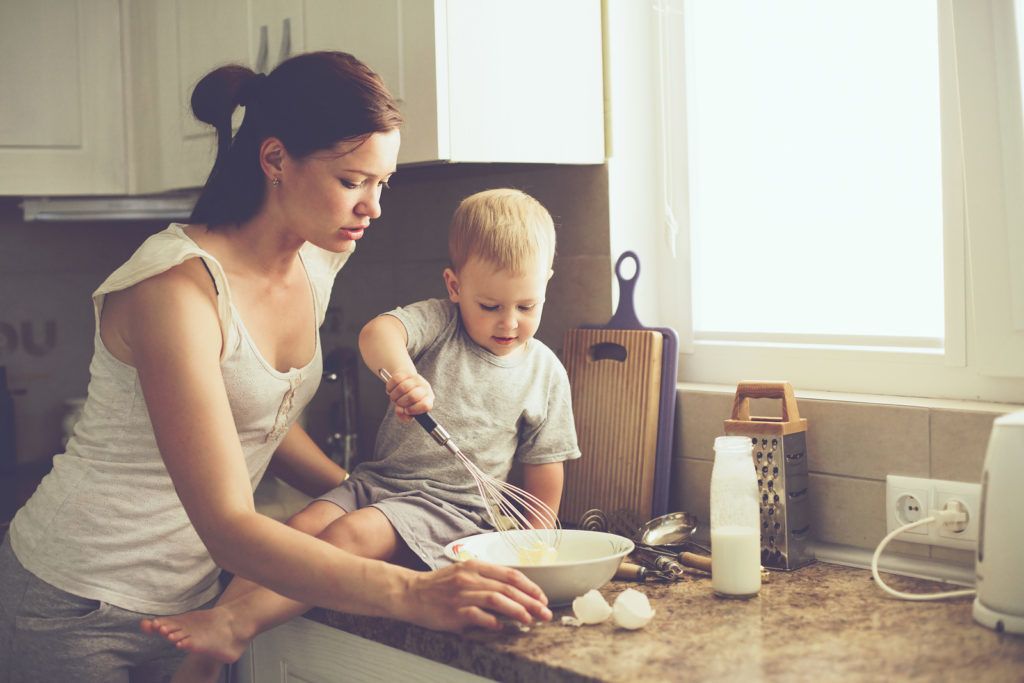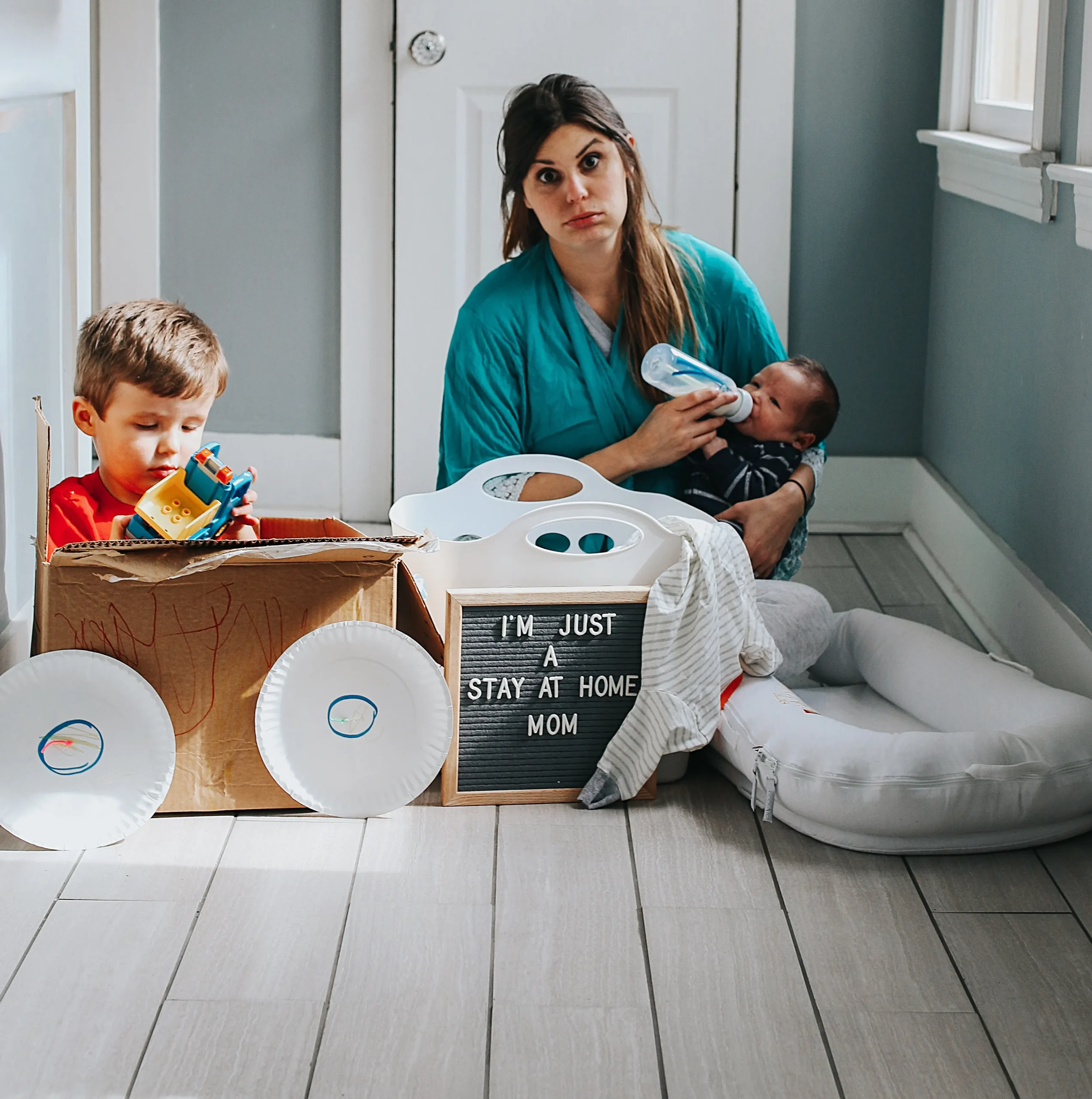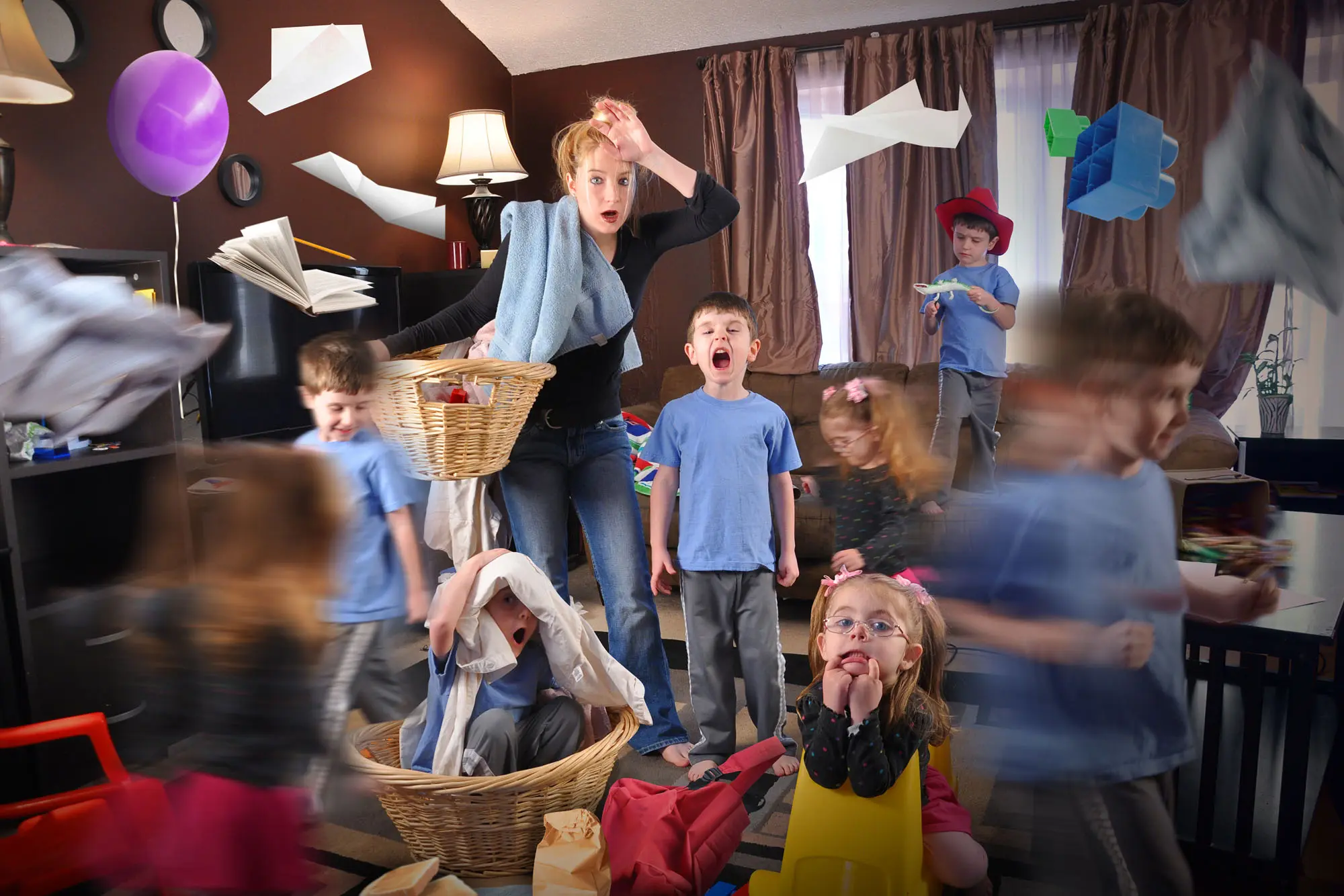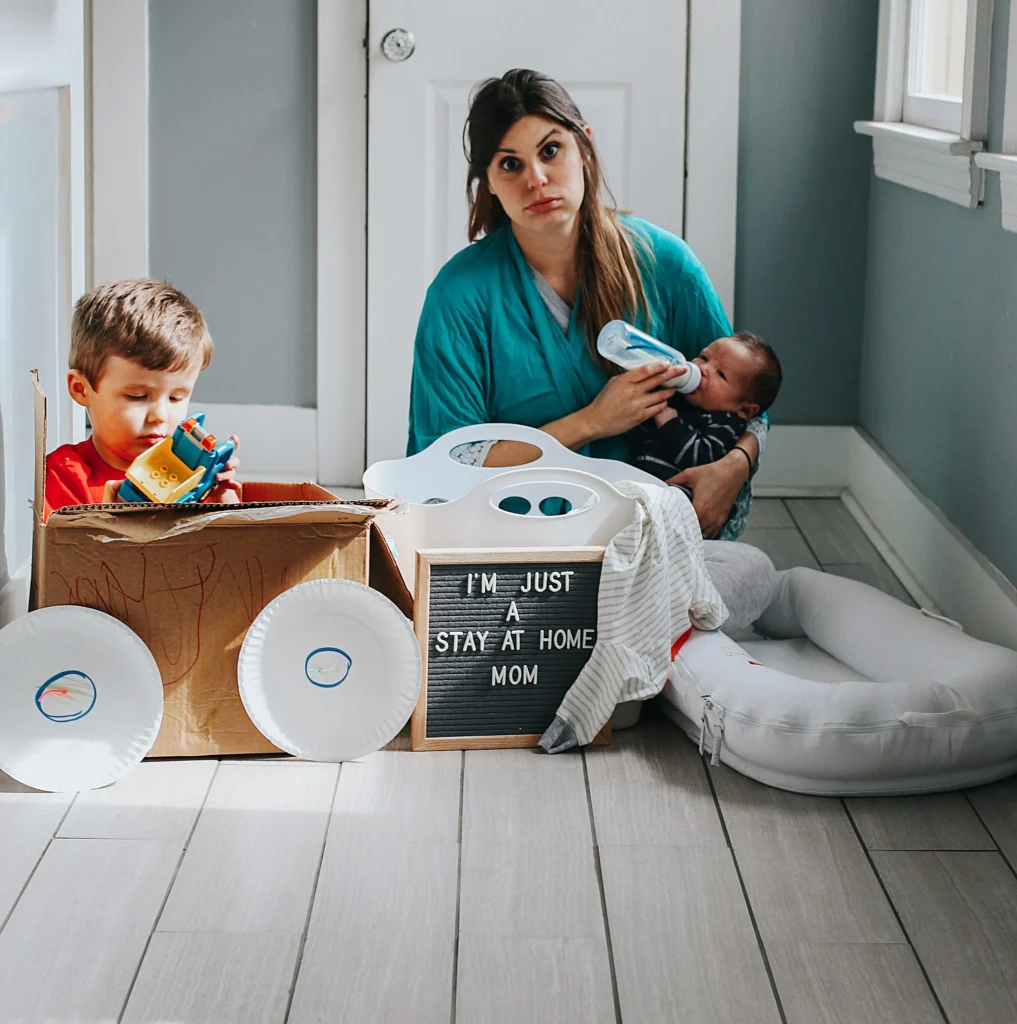At first glance, it seems like a dream: no early alarms, no rush hour, no awkward office politics. Just time at home with your adorable kids, cozy pajamas, and the freedom to sip coffee on the couch, right?
Wrong.
Ask any stay-at-home parent—mom or dad—and they’ll probably respond with a tired laugh, maybe a glazed look, and a comment like: “If only I could drink my coffee while it’s still hot.”
Motherhood is hard. It’s not a secret but no one tells you that the hardest part about being a mom has little to do with your child
The Illusion of “Ease”
There’s a lingering myth in society that staying at home with children is a luxury. That it’s easier, simpler, maybe even a bit indulgent. After all, how hard could it be to hang out with your own kids all day?

Spoiler alert: very hard.
In fact, a study by AVEENO Baby found that nearly 1 in 3 parents (31%) believe staying at home with children is harder than returning to a regular 9-to-5 job. And they’re not just talking about physical exhaustion—though there’s plenty of that too. It’s the relentless multitasking, the emotional load, the mental gymnastics of managing tiny humans who operate on chaos and crackers.
Behind Closed Doors: The Realities of Stay-at-Home Parenting
- 33% of parents say they eat most meals with just one hand.
- 22% admit they haven’t had a hot cup of tea since their baby arrived.
- 17% say their back is in permanent pain.
And only 48% of parents describe starting a family as a “perfect” experience—because let’s face it, perfection has nothing to do with toddler tantrums in the supermarket.
But it’s not just about physical fatigue. Emotionally, the road can be even rougher.
Loneliness, Identity Loss, and Mental Health Struggles
While many people praise the sacrifices stay-at-home parents make, few recognize the silent challenges that come with it. According to a Gallup poll of over 60,000 women, stay-at-home moms were more likely to report experiencing depression, sadness, and anger than working moms.

- 42% of stay-at-home moms said they felt like they were “struggling,” compared to 36% of working moms.
- 26% reported feeling sad the day before, and 50% experienced high stress.
- Fewer SAHMs smiled or laughed during the previous day, compared to working mothers.
And yet, the stigma still lingers. Phrases like “You’re so lucky to stay home,” or “What do you do all day?” dismiss the emotional labor, time, and effort it takes to raise humans, keep a household running, and somehow not lose yourself in the process.
What the Research Really Says
The Pew Research Center and other studies offer sobering facts:
- More moms are staying home now than a decade ago, but not always by choice.
- 34% of stay-at-home mothers live below the poverty line—compared to 12% of working moms.

Many stay-at-home moms cite health issues, inability to find work, or enrollment in school as the reason they remain at home.
57% of stay-at-home moms say they’d like to return to the workforce someday.
This paints a more complex picture: staying home isn’t always a choice made from privilege. For many, it’s a difficult decision based on financial, emotional, or logistical necessity.
The Myth of “Having It All”
No matter which path a parent chooses—working outside the home or staying in it—the judgment seems unavoidable. Stay-at-home moms are asked when they’ll “get back to work.” Working moms are questioned about who’s “really raising their kids.” And dads in either role are often treated like unicorns—admired or scrutinized in equal measure.
But here’s the truth: you can’t win by society’s standards. And maybe we shouldn’t try to.
What Actually Matters
Here’s what does matter: Are you doing what’s right for you and your family?

Whether that means being home for every milestone or pursuing your career while juggling daycare runs, both paths require love, sacrifice, and strength. And both deserve equal respect.
Because staying home doesn’t mean sitting still. It means playing nurse, teacher, chef, cleaner, therapist, event planner, chauffeur, and snuggle machine—sometimes all before noon.
So the next time someone says, “I could never just stay at home with kids,” feel free to smile and reply:
“You’re right. Not everyone can.”
(1) Cohn, D., & Caumont, A. (2014, April 08). 7 key findings about stay-at-home moms. Retrieved from https://www.pewresearch.org/fact-tank/2014/04/08/7-key-findings-about-stay-at-home-moms/
(2) Duncan, A. (n.d.). The Discoveries, Studies, and Other Research Found on SAHMs. Retrieved from https://www.verywellfamily.com/research-stay-at-home-moms-4047911


